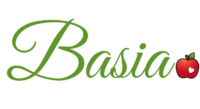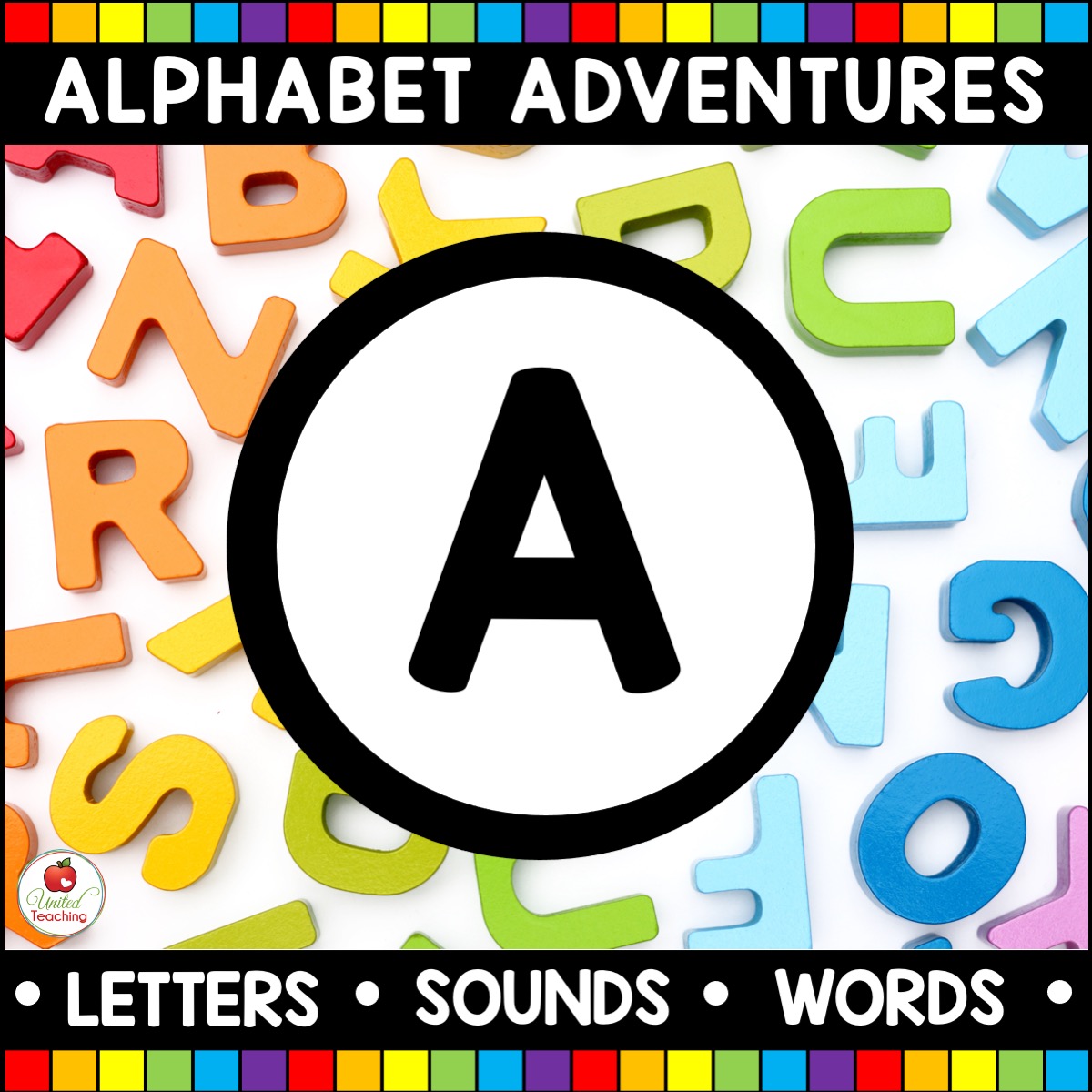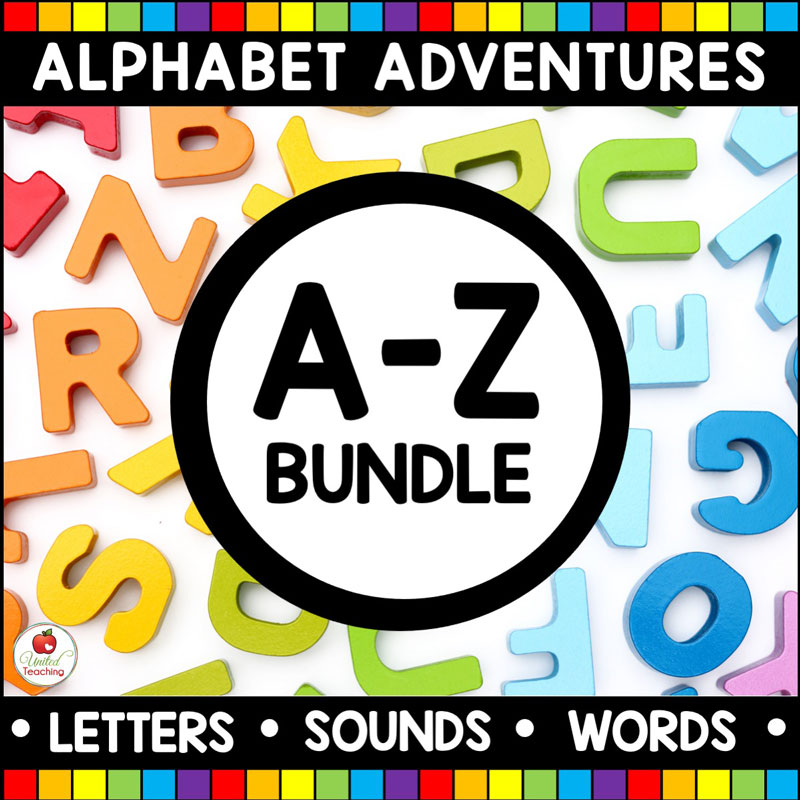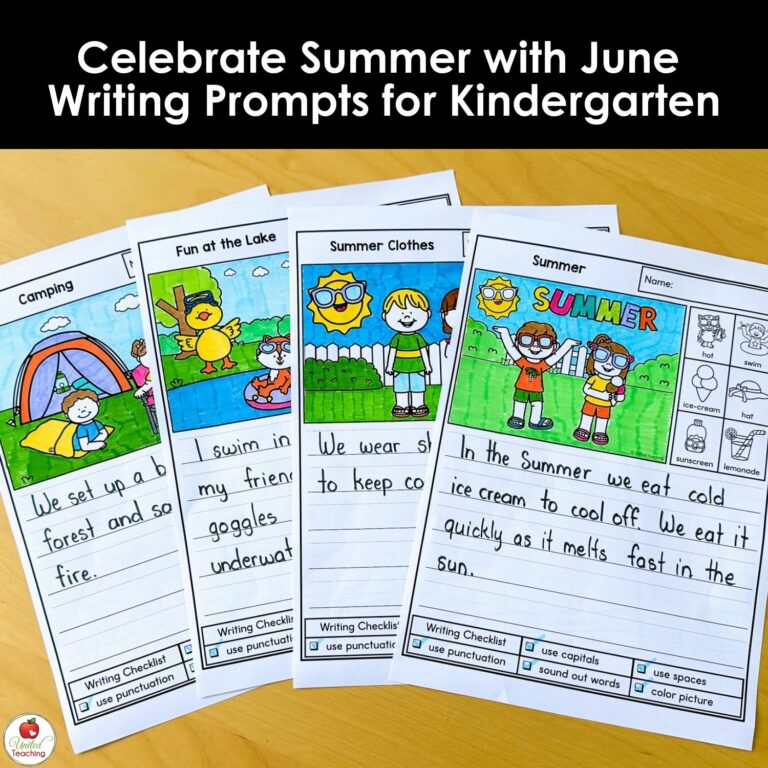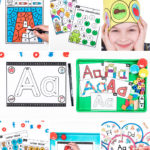Beginning to learn the alphabet is like embarking on a great adventure. It is one of the first steps on the journey to learning to read and a foundational skill that will prepare your children for reading success. However, teaching the alphabet involves more than just teaching letter names. Children need to recognize both uppercase and lowercase letters of the alphabet, as well as the sounds that the letters make. Once children know letter sounds, they can begin combining the letters to make words and begin reading. Wondering how to teach the alphabet and help your child learn to read? The Alphabet Adventures Curriculum has been designed to teach the letters of alphabet and letter sounds with a variety of easy to prep activities.
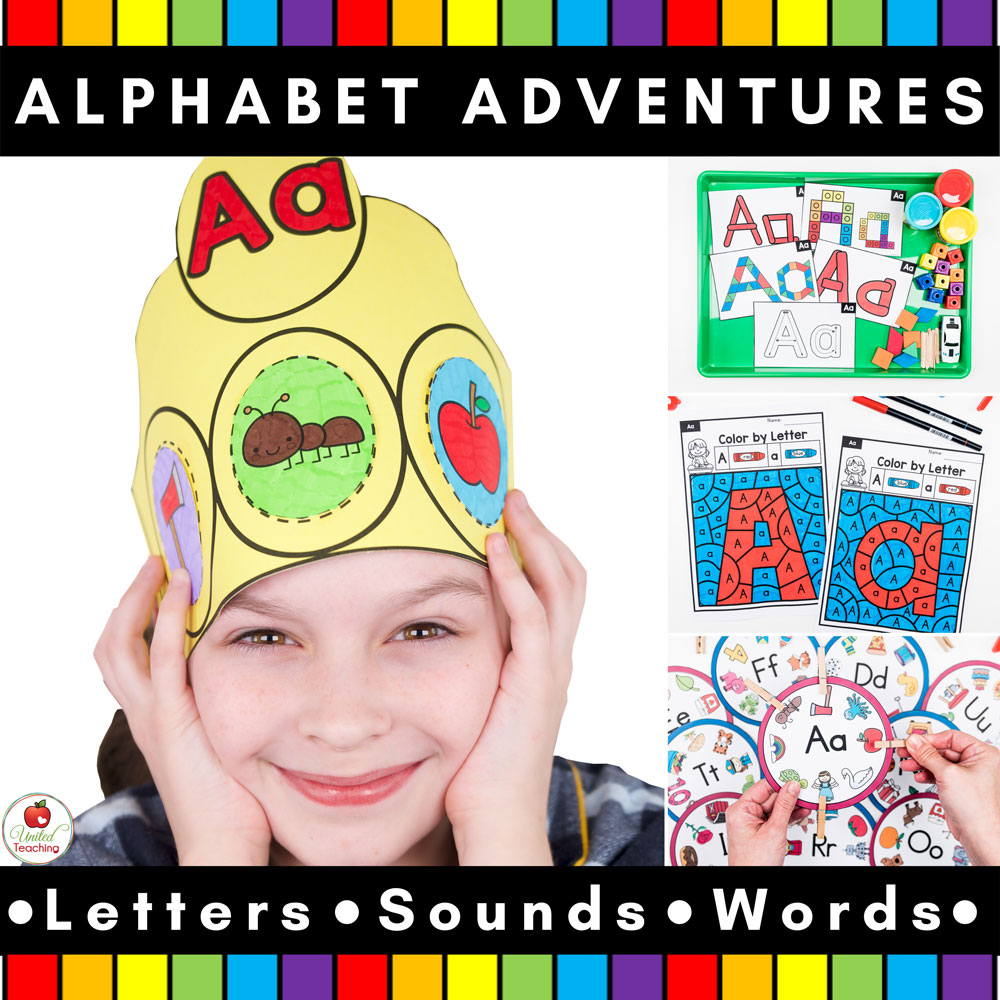
What Alphabet Skills do Children Need to Learn?
How to teach the alphabet is one of the most common questions asked by parents and educators of young children. Children need to master a number of skills and outcomes when learning the alphabet. This includes:
- Letter Recognition
- Identifying the uppercase letters of the alphabet
- Identifying the lowercase letters of the alphabet
- Matching the uppercase letters to the lowercase letters
- Letter Sounds
- Knowing the sounds each letter makes
- Letter Formation
- Tracing the letters of the alphabet
- Writing the letters of the alphabet
While some children learn the alphabet letters very quickly, others need more repetition and time to learn letters. Teaching the alphabet takes time and requires lots of repetition and patience. Also, as different children have different learning styles, having a variety of alphabet activities on hand will ensure that learning doesn’t become boring and can be catered to the different learning styles.
The Alphabet Adventures Curriculum includes fun and engaging activities that focus on the essential skills and outcomes for learning the alphabet. The alphabet activities include NO PREP alphabet worksheets, hands-on alphabet centers, and alphabet crafts. Also included is this fun Alphabet Letter Map that can be used to track the progress of your Alphabet Adventure.
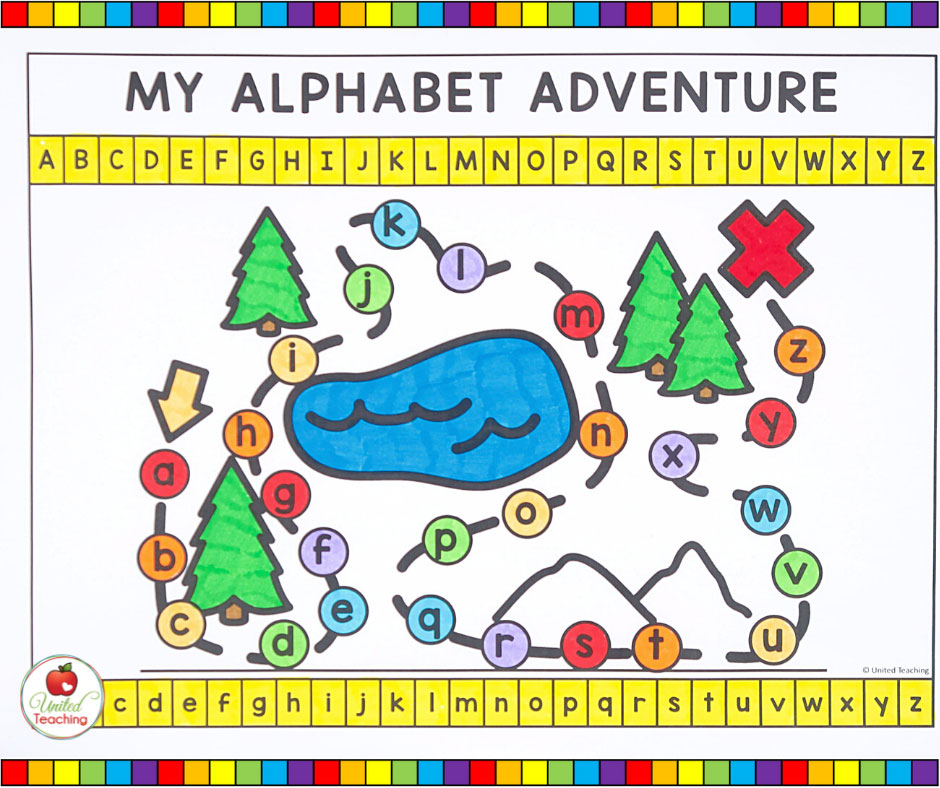
Let’s have a look at a sample of the activities included in the Alphabet Adventures Curriculum.
Alphabet Letter Recognition Activities
The first essential step in learning the alphabet is learning to recognize the letters of the alphabet. Children need lots of practice in learning the letter names and learning to discern the various letters from each other. Letter recognition skills include visual discrimination between the letters, recognition of uppercase and lowercase letters of the alphabet, and associating each letter of the alphabet with its name. The Alphabet Adventures Curriculum includes numerous activities that help children master these concepts in a fun and engaging way.
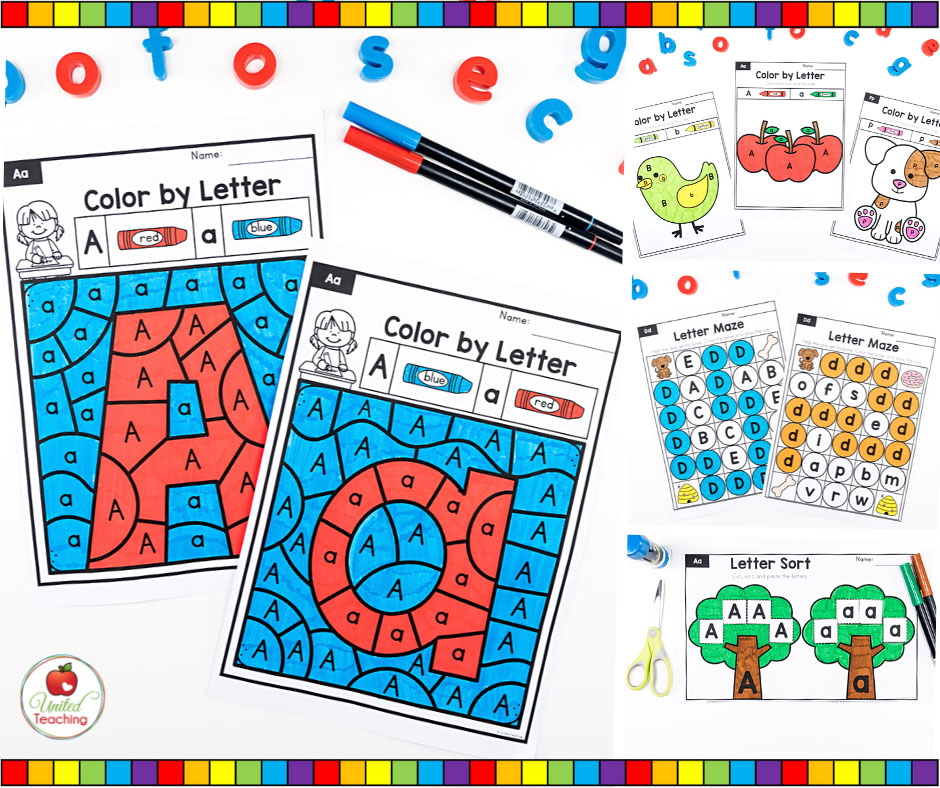
The Match the Letter worksheets help children work on visual discrimination of letters and matching lowercase and uppercase letters of the alphabet.
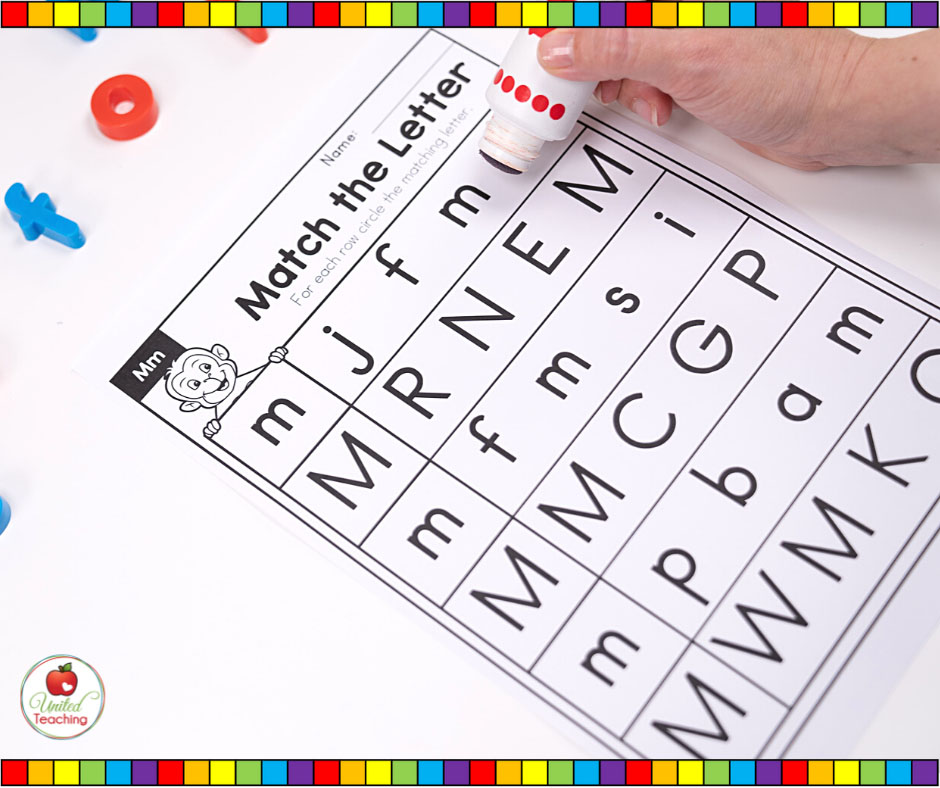
In the Letter Maze worksheets children make their way through the letter maze by colouring the focus alphabet letter. Alphabet mazes are included for uppercase and lowercase letters of the alphabet.
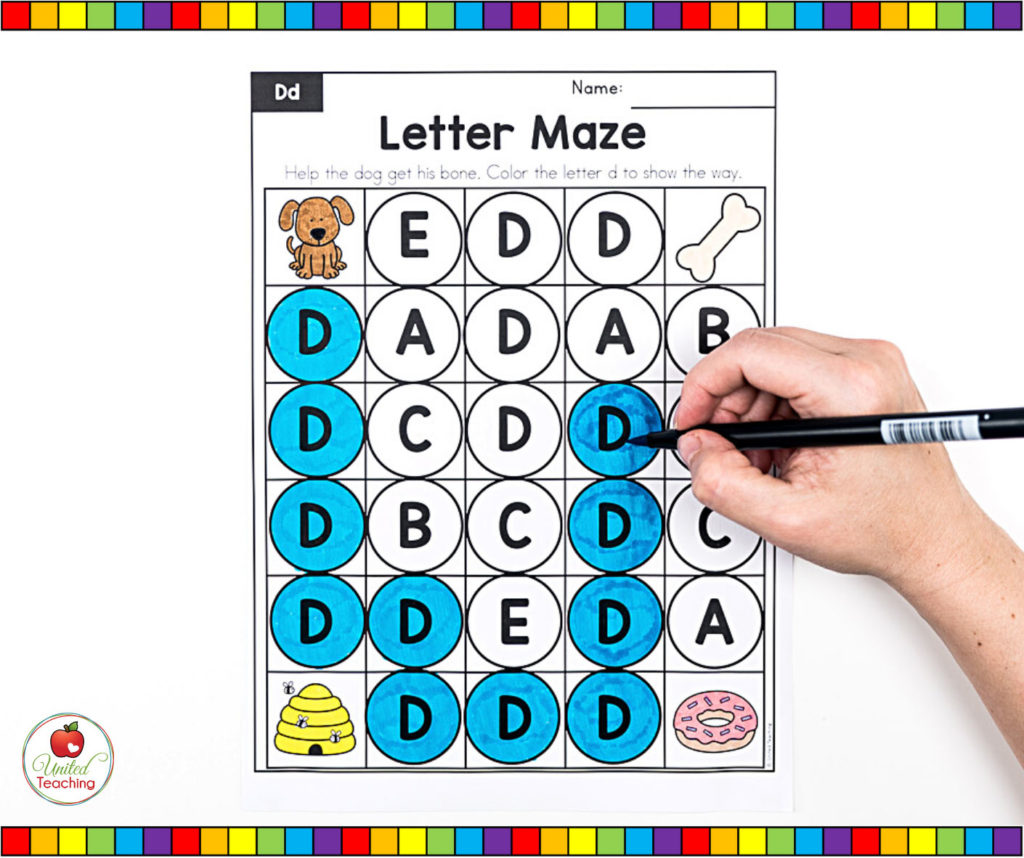
Children love to complete the Picture Letter Mazes. These Letter Mazes help students with letter recognition and associating the letter with its sound. Each maze picture represents the sound of the letter.
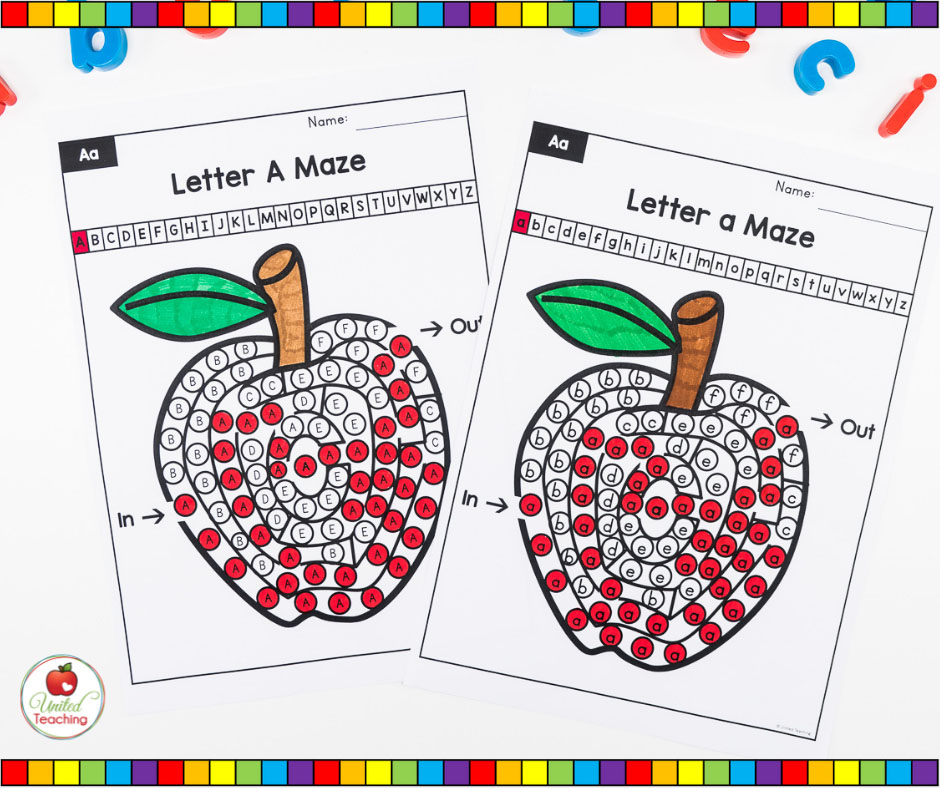
Children need to be able to match uppercase and lowercase letters of the alphabet. The Color by Letter Mystery Picture worksheets help children associate the uppercase and lowercase letters with each alphabet letter. Children color the uppercase and lowercase letters using the color code.
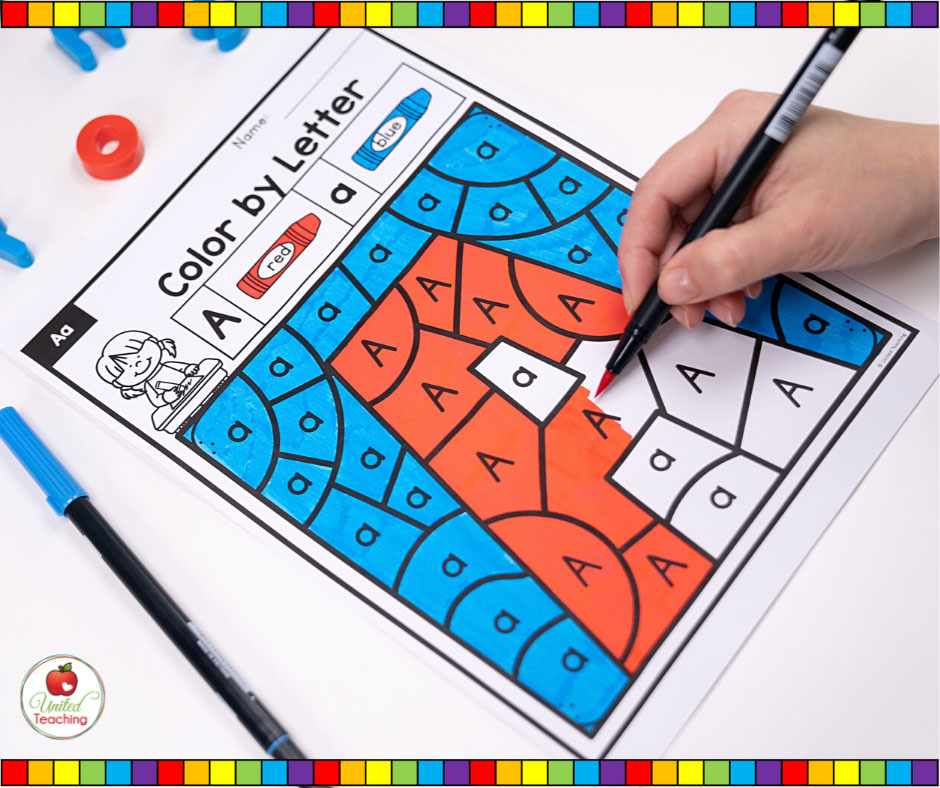
Similarly, the Color by Letter picture worksheets provide children with an opportunity to color a picture using the uppercase and lowercase letter code. Each picture represents the sound for the alphabet letter.
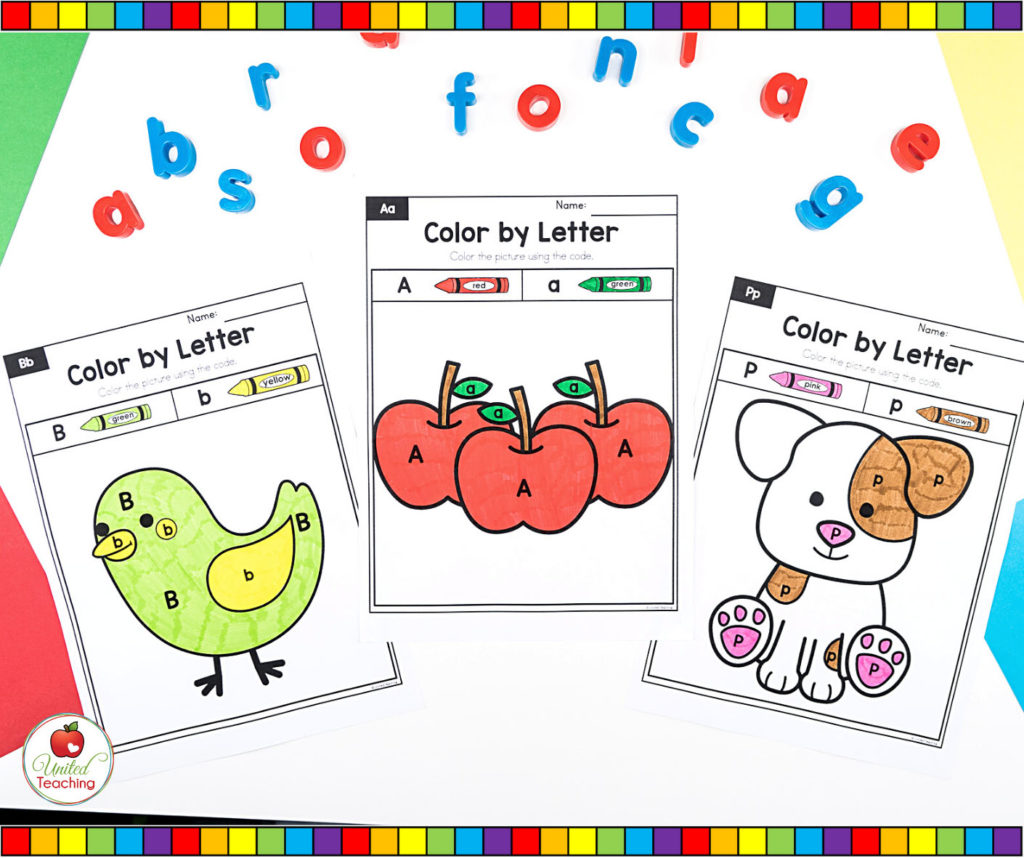
Children need to be able to recognize the alphabet letters in a variety of font types. The Letter Identification worksheets are a fun way for children to identify different letter styles by coloring the focus letter.
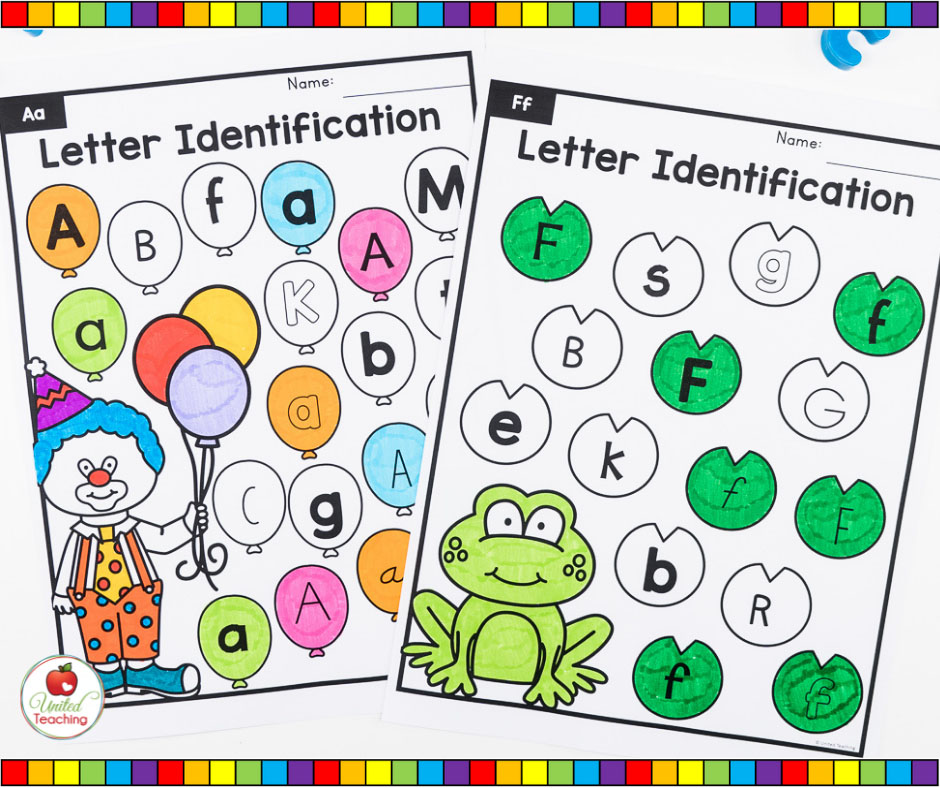
Letter Sound Activities
Children need to know that each letter of the alphabet represents a sound or several sounds depending on the letter. The Alphabet Adventures curriculum includes are range of NO PREP and hands-on activities for children to learn the beginning letter sounds. Letter-sound correspondence takes time but with lots of practice children will develop phonemic awareness and be on their way to learning to read.
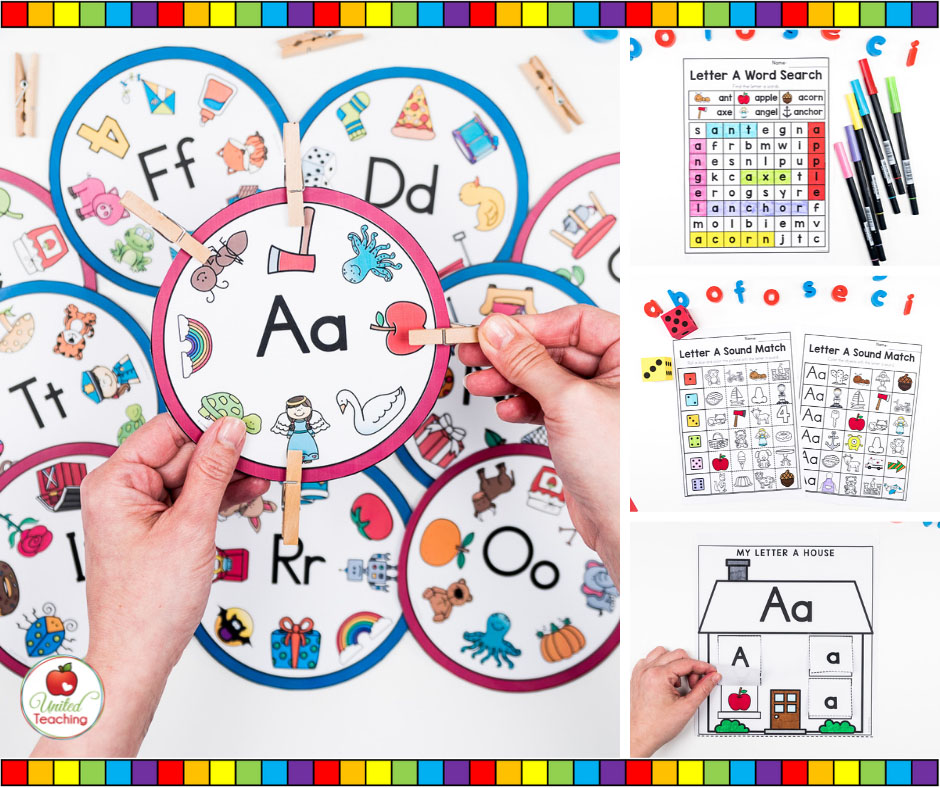
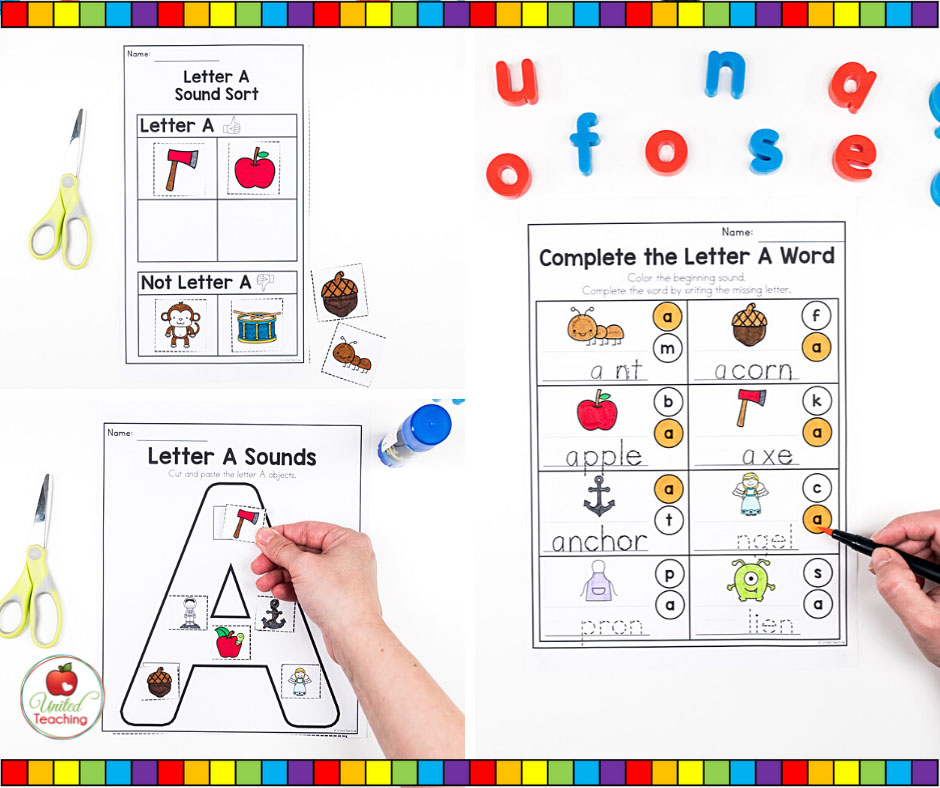
For a quick activity, children love the Beginning Sounds coloring worksheet. Children find and color the pictures with the matching beginning sound.
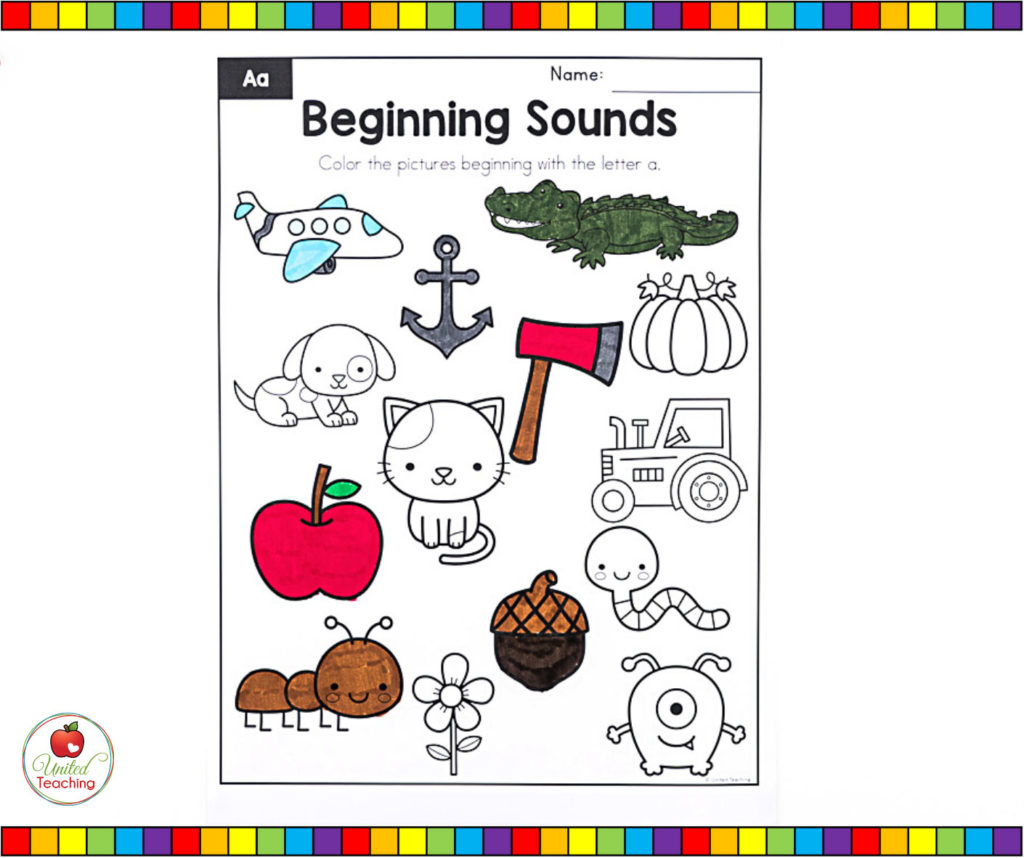
The Letter Sounds Sort cut and paste activity also focuses on identifying objects with the beginning sound. Students say the name of each object, sort, and cut and paste the pictures into the matching boxes.
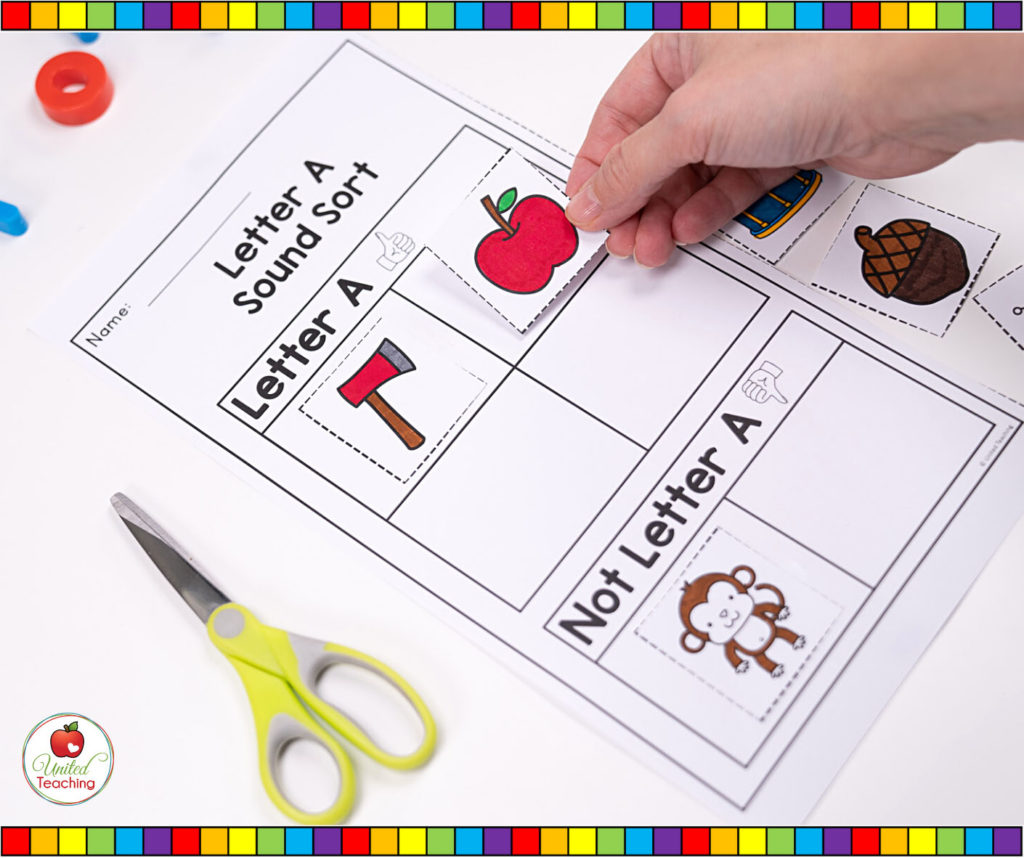
For a more hands-on activity, children can use the alphabet letter clip cards. Children clip pegs to the objects with the matching beginning sound. This activity is also great for working on fine-motor skills.
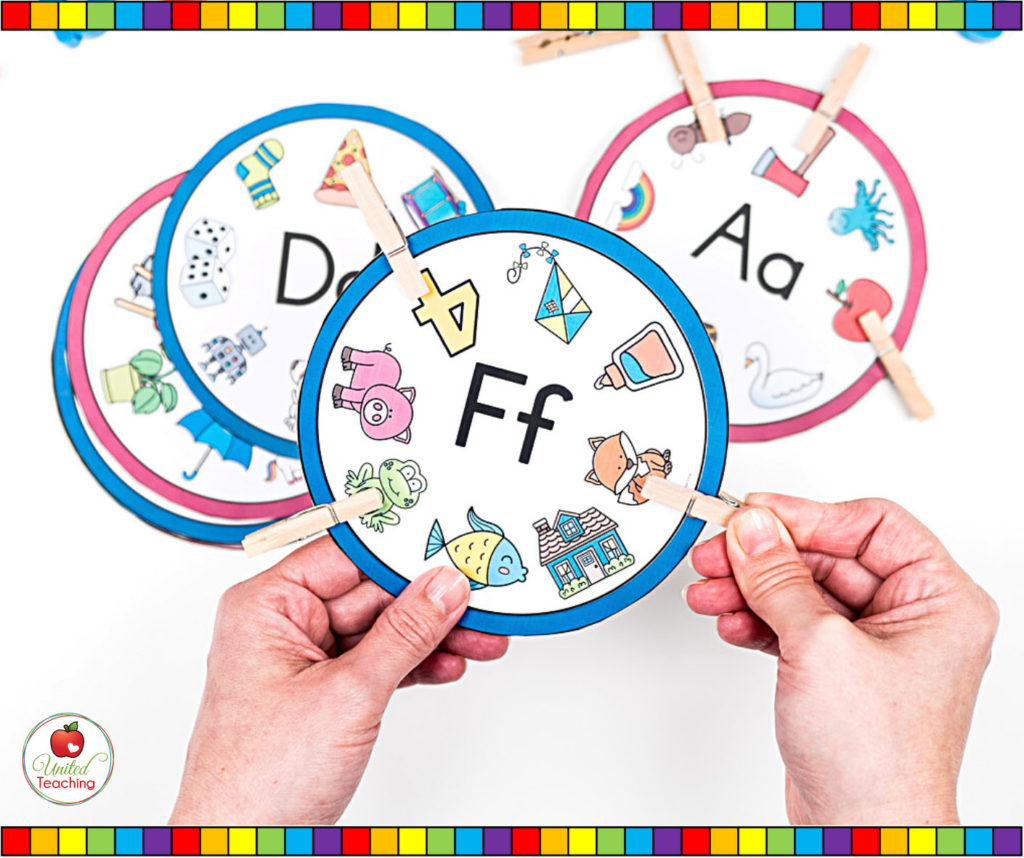
Children love games. With the Letter Sound Match worksheets, children have the option of rolling a dice and finding the object with the matching beginning sound.
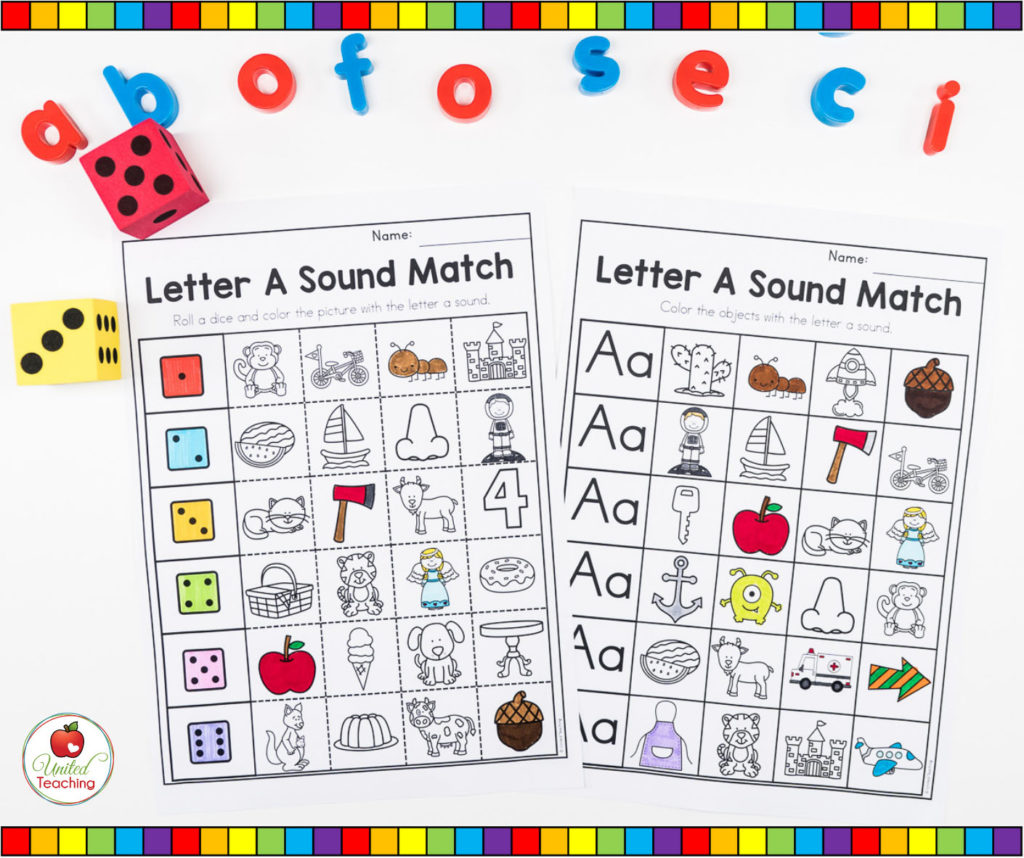
Help children associate the alphabet letter with its beginning sound with the Alphabet Letter Cut and Paste activity. This activity is great as an easy alphabet craft or for including in an interactive notebook. Print the letters on colored paper and create an alphabet sound wall.
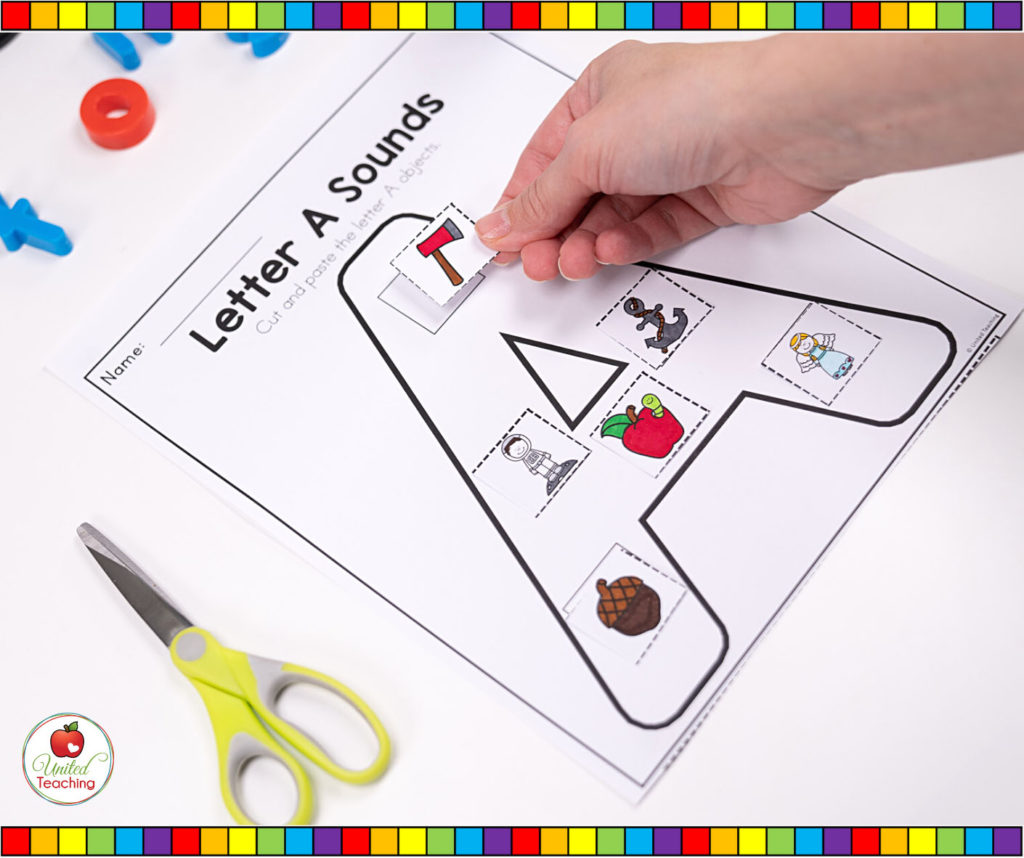
The Letter Houses is another great activity for interactive notebooks. Under each letter flap is a picture with the matching beginning sound.
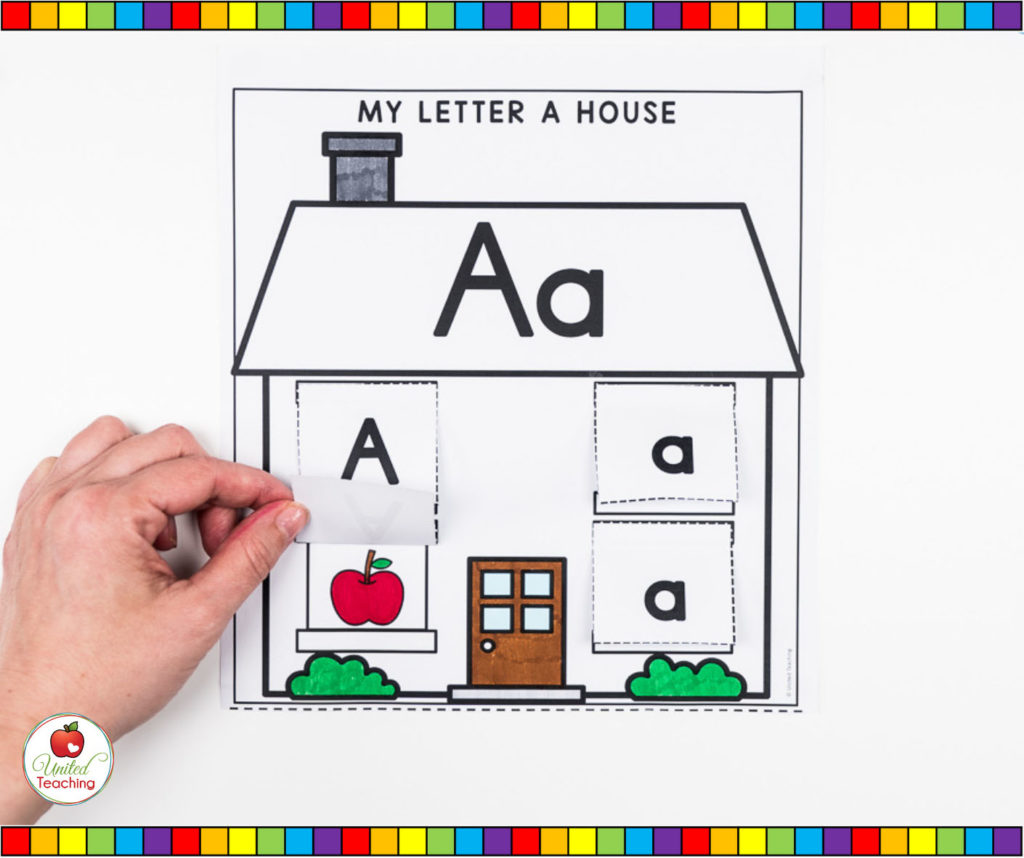
As children gain confidence in identifying letters and words, they can complete the alphabet letter word search. Each word has a picture beside it so children can read the word.
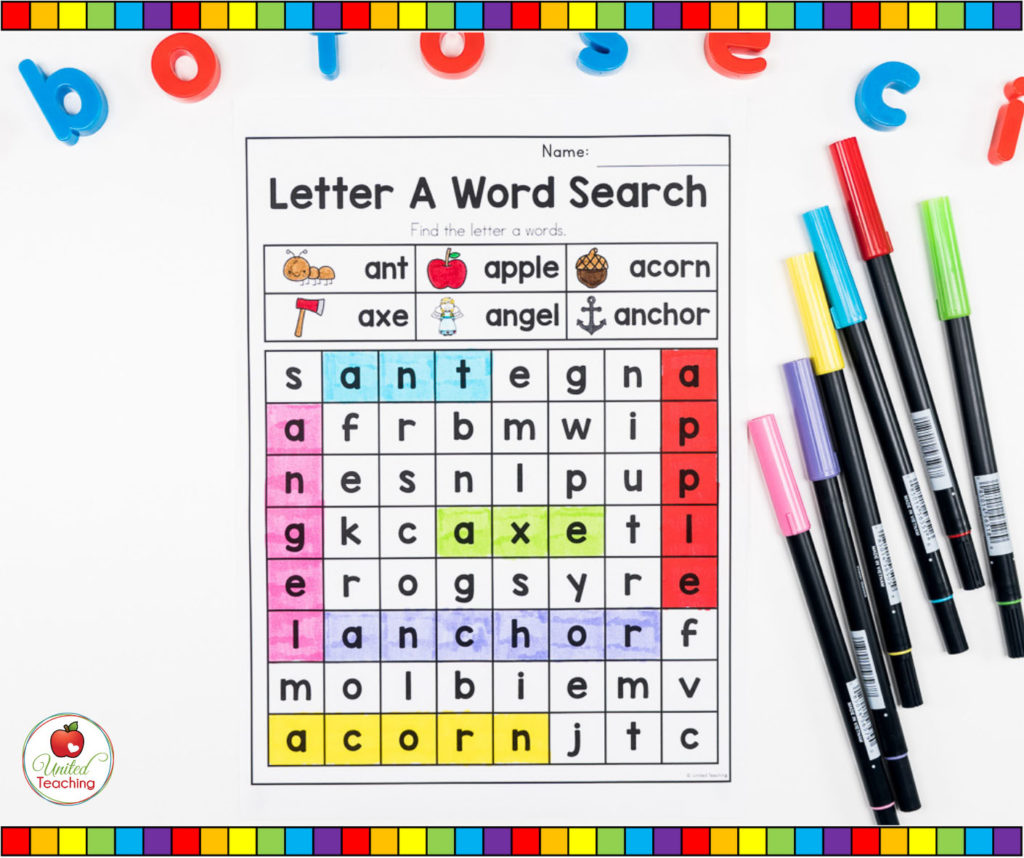
To review the alphabet letters, letter formation, and letter sounds, children can complete the Alphabet Letter Review Worksheets.
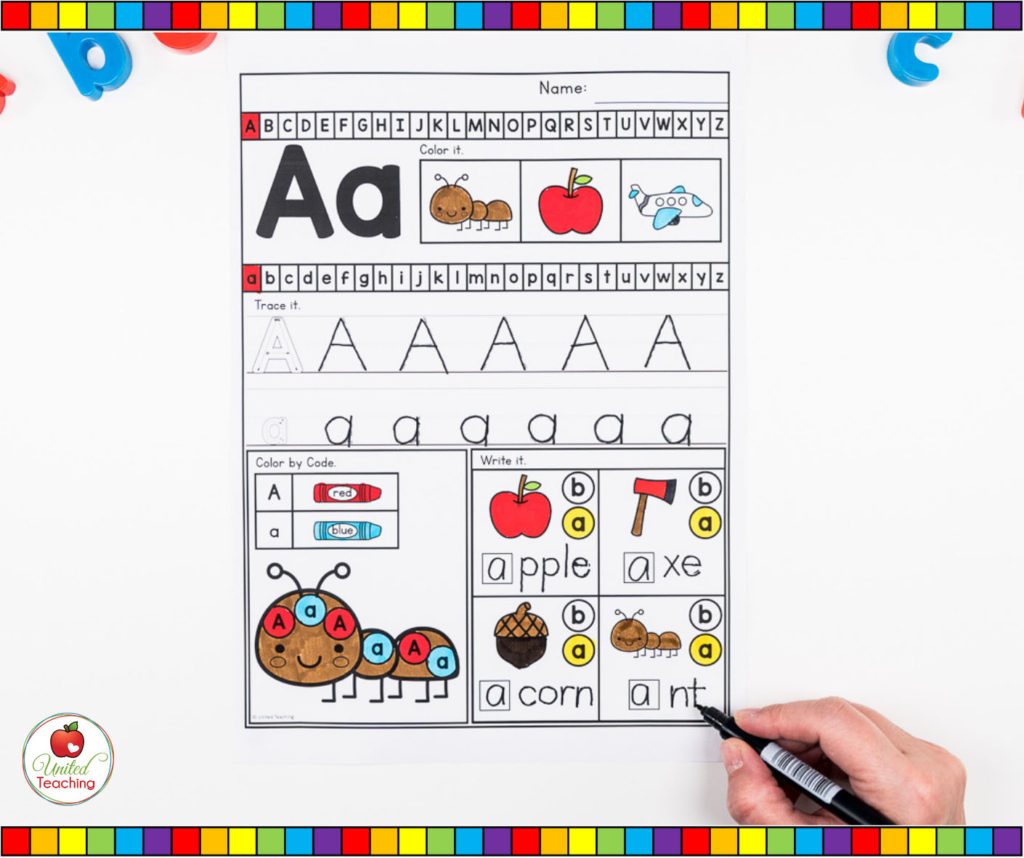
Alphabet Letter Formation Activities
Letter formation is the ability to be able to form the alphabet letters correctly. Hands-on and tactile activities are a great way to encourage the development of fine motor skills and letter formation skills. Both of these skills are essential for children so they can learn to write.
This letter formation mat can be used by tracing the letters with a finger or using small objects such as mini erasers to build the letters of the alphabet.
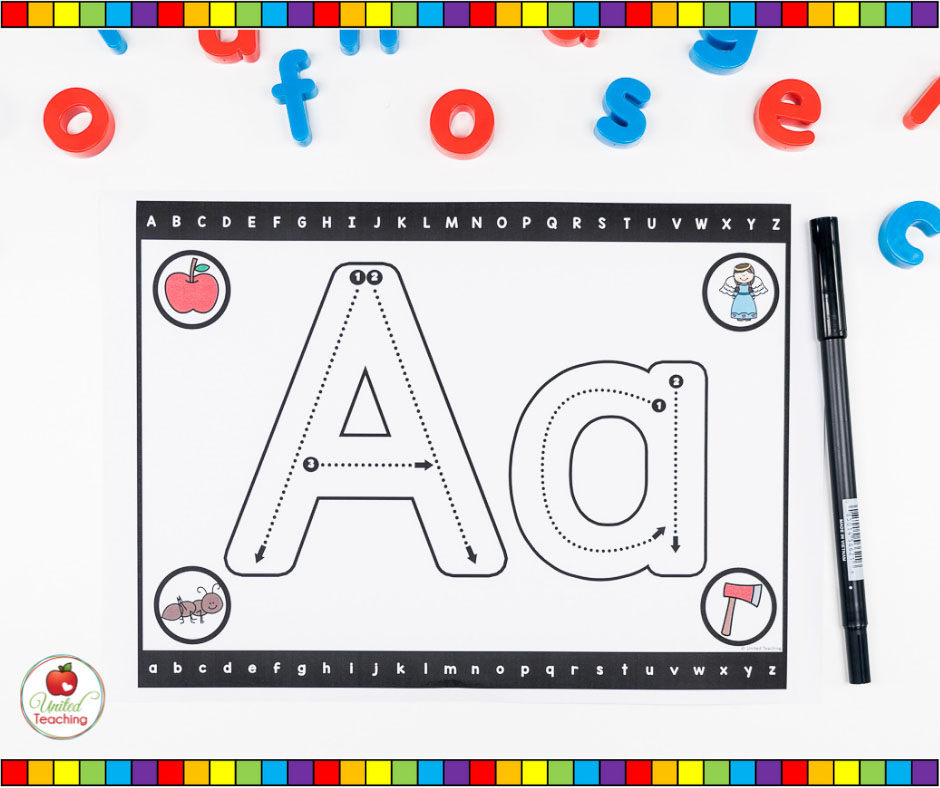
Building letters using play dough is also a fun hands-on alphabet activity for developing fine motor skills and letter recognition. Both uppercase and lowercase letters are included on the mat.
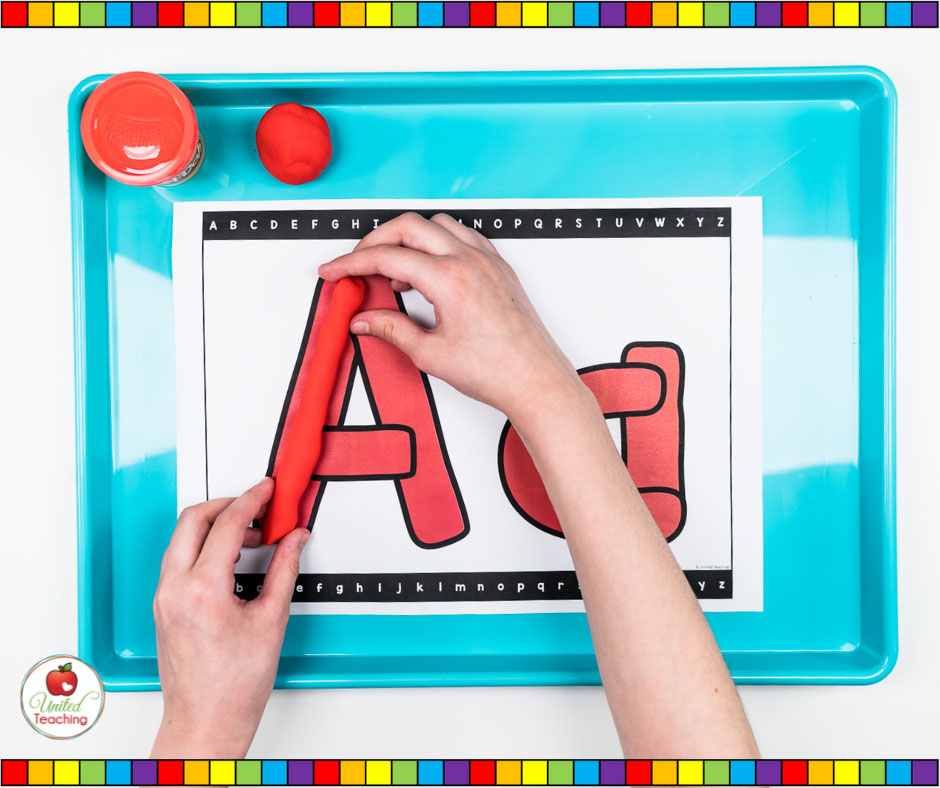
Children love dot markers. With the Dot the Letter worksheet, children can use dot markers to decorate their alphabet letters. The pictures on the sides are of objects beginning with the focus letter. Use plastic math counters or other small objects to fill the circles on the Dot the Letter mats.
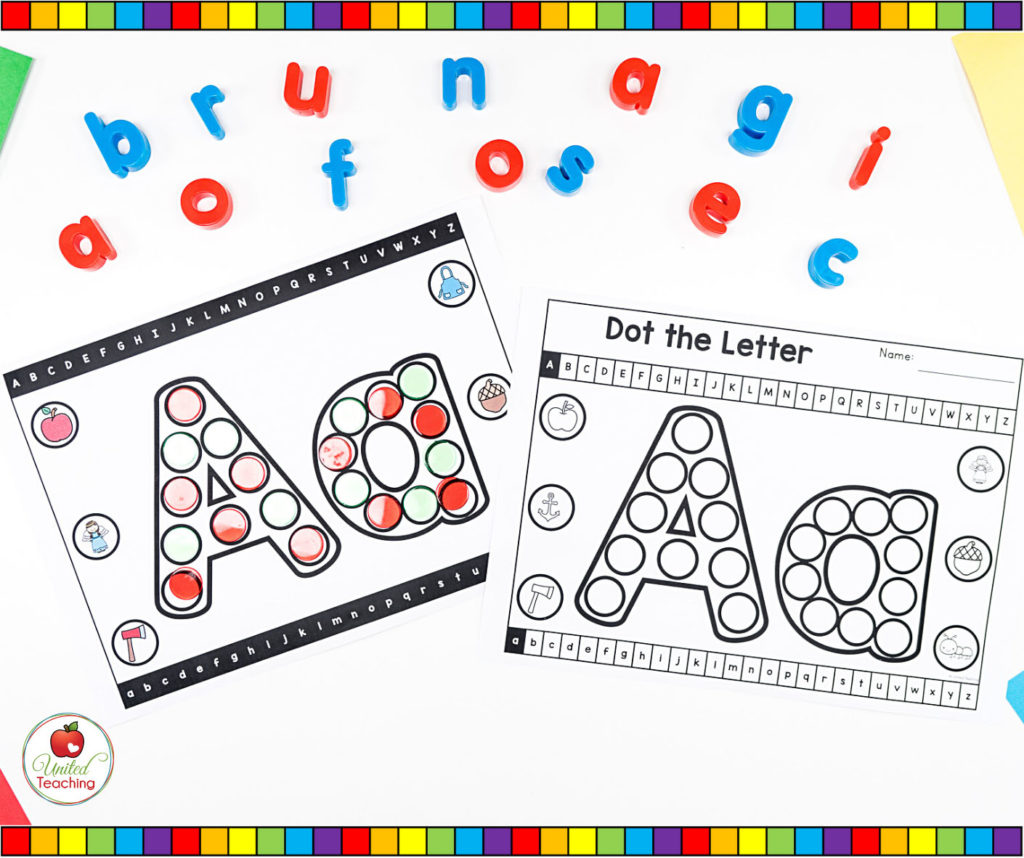
Other Letter Mats included in the Alphabet Adventures curriculum include road letter mats, stick letter mats, plastic cube letter mats, and pattern block letter mats.
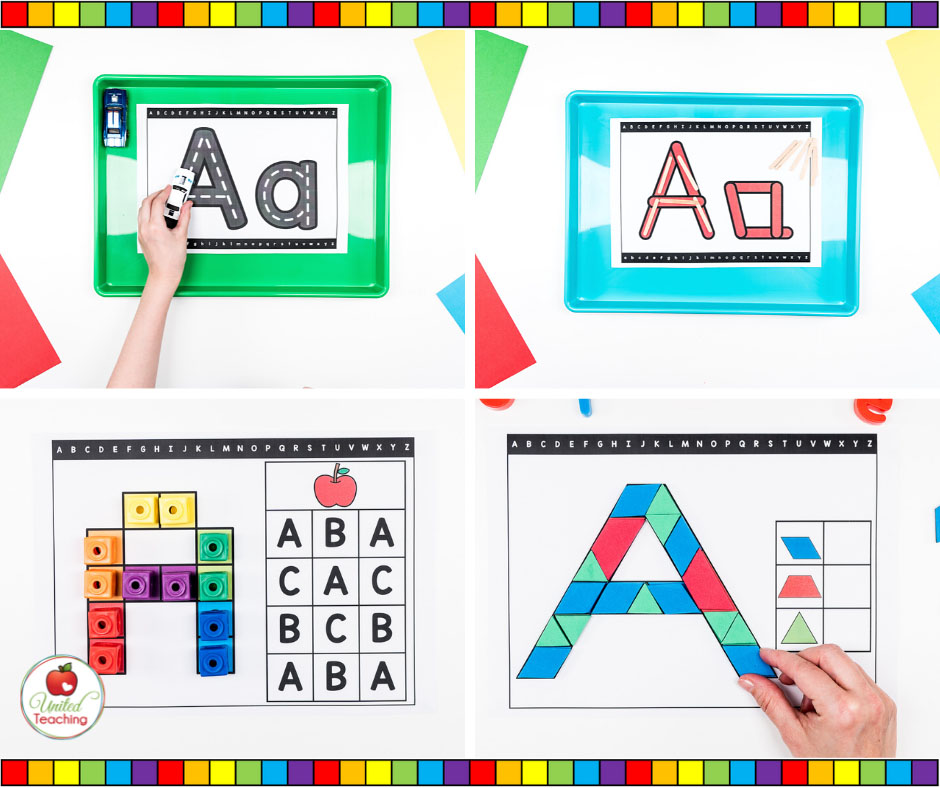
Alternatively, children can use the small letter task cards to work on their fine motor skills and build the alphabet letters.
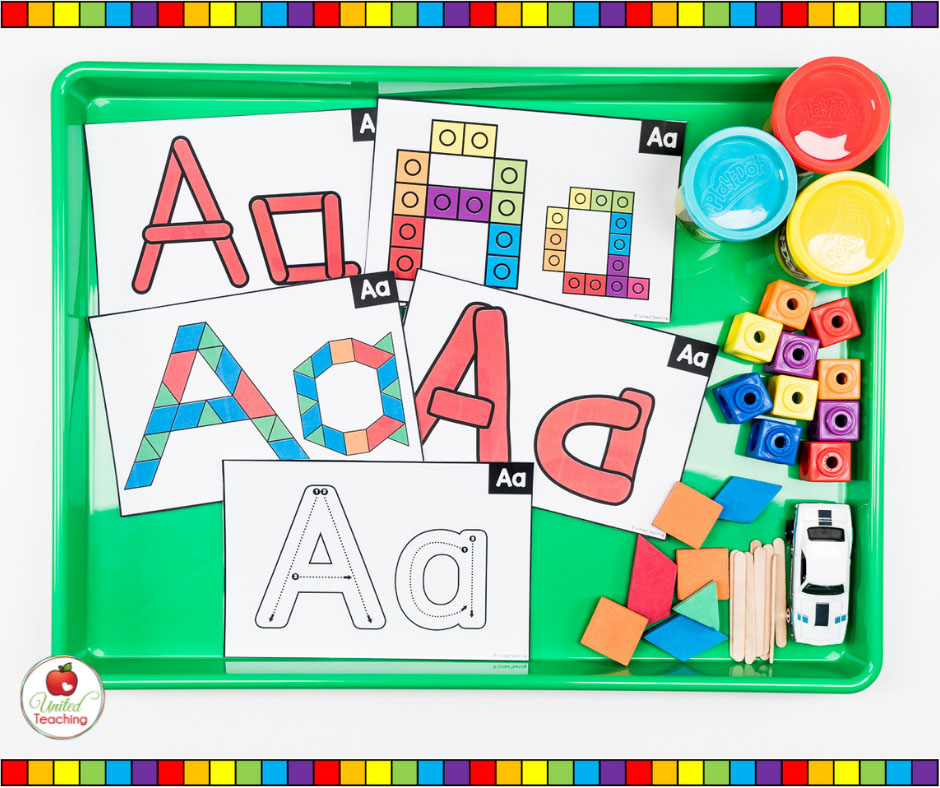
Store the letter task cards in a small plastic container.
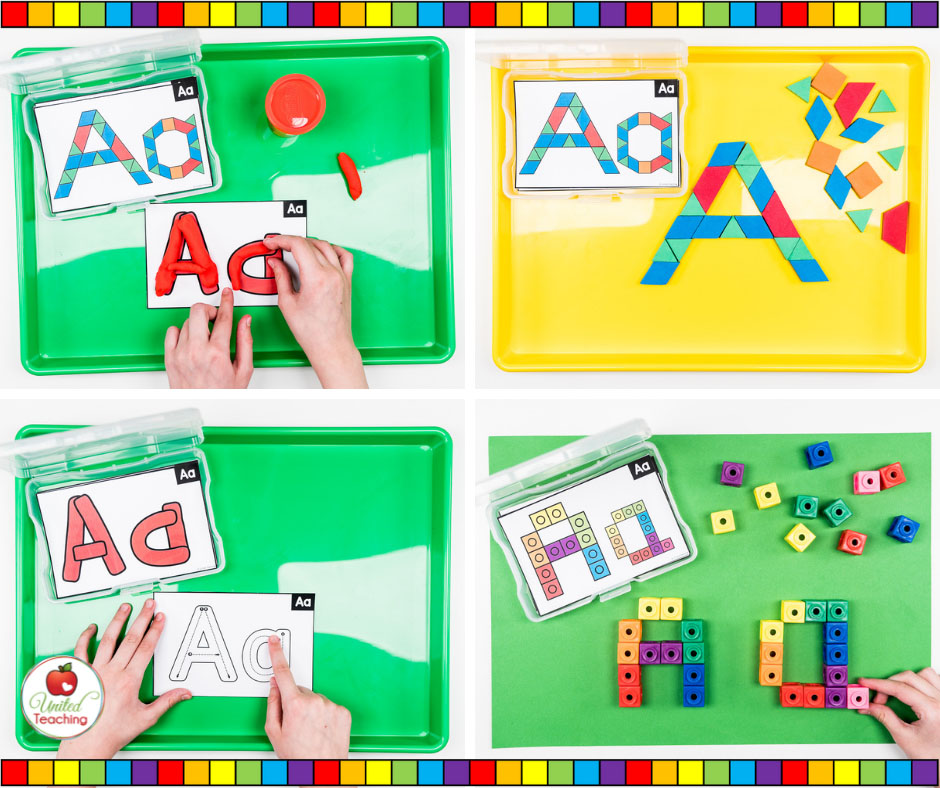
As children develop their fine motor skills and begin to practice writing letters, they can complete the large variety of letter writing worksheets included in the Alphabet Adventures curriculum. This includes the Roll and Write letter writing worksheets.
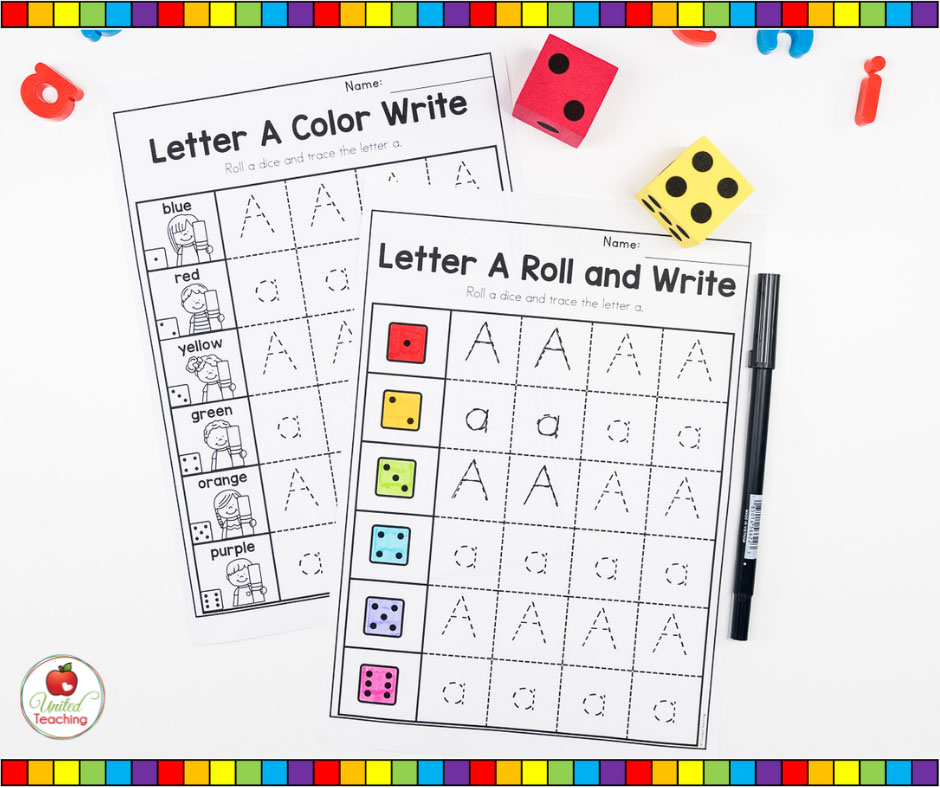
Alphabet Letter Crafts
Alphabet letter crafts are a great addition to any alphabet or Letter of the Week program. There’s several fun and easy-to-assemble abc letter crafts for every letter in the Alphabet Adventures Curriculum. These abc crafts use common materials such as scissors, glue, makers, and string or ribbon. For each letter of the alphabet children can create a crown, bracelet, or medal.
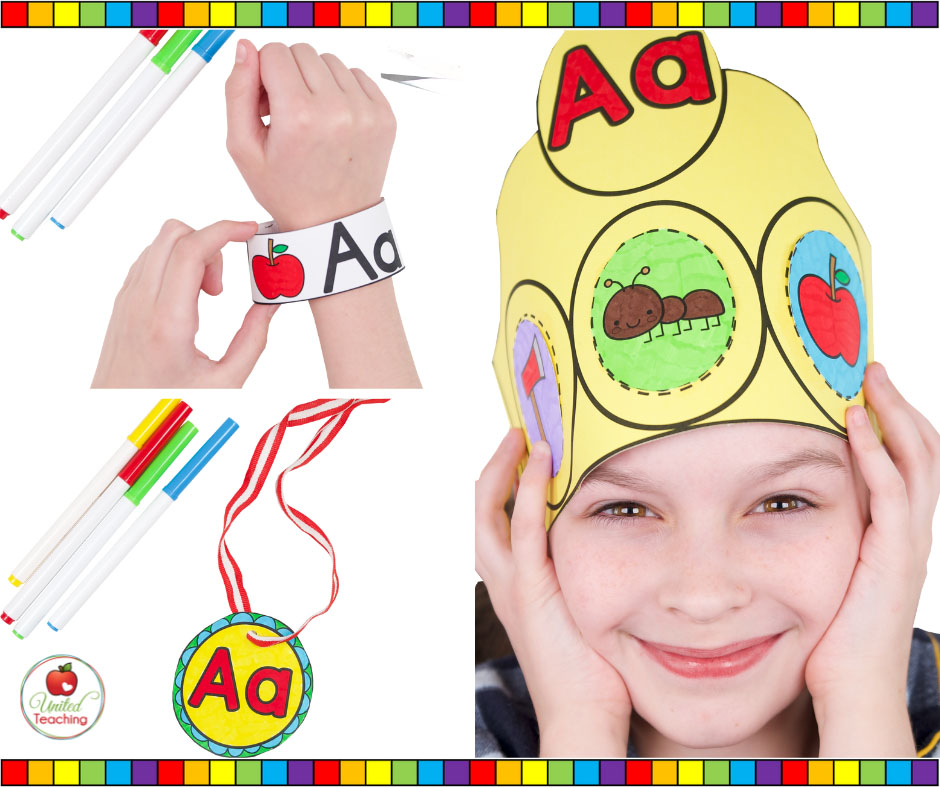
Knowing how to teach the alphabet is easy and fun with this collection of printables and activities. Lots more activities are included in the Alphabet Adventures Curriculum.
Try the Alphabet Adventures Curriculum with the FREE Letter A download.
Purchase the Alphabet Curriculum and individual letter packets on Teachers Pay Teachers.
